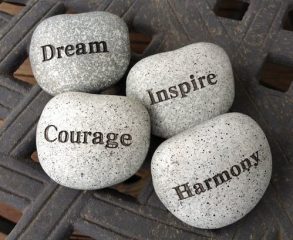So often, we look at our lives and wonder why we are where we are and what got us in this place. It is the wonder that creates the anxiety that we feel because of not being where we think we should be. Why is this different in every individual? Trying to keep up with someone else or doing something that is not who we are will not get us where we need to go. The reality of life is that it is diverse and if we don’t embrace diversity then we miss out on hearing him when I speak of diversity, I’m talking about all our options. The ability to see things from a different perspective, the choices we have yet aren’t realizing.
How many times have you looked at your life and wondered why you are here? You may have thought I have no way out, I’m in a box that has no exit. When those feelings exist, a person can become stuck in a never-ending cycle and that cycle is down not up. If you feel like you’re in a box, look around and inspect that box, what is holding you in? What you see may surprise you because many times it is YOU. You may think it’s a person or situation but believe me, each of these can be changed. The question is, are you committed to changing these issues? I know many times we think there’s no way out but let me tell you there’s always a way out. The way out is discovery!
Being open to discovery is a choice. We make choices every single day. These choices come from other people, places, spiritual guides, and most importantly from our spirit. We can choose the option that works for us in any situation. The question is, are we listening to ourselves? We are always having advice pumped into our heads, but we don’t listen to most of it. What we need to do is to listen to our other voices and eliminate the barriers that are preventing them from getting through.
The barriers are basically what we put on ourselves. We need help with relationship barriers, financial barriers, geographical barriers, or any other type of barrier that creeps up and tells us we can’t do something. I want to tell you that you can make changes. Not tomorrow but today. If you’re reading this and you’re saying it to yourself, I can’t do it go find somebody that can help you do it. That person will possess a few key qualities. One, they are very positive; two, they will hold you accountable; they will listen and not judge. Do you know someone like that?
“A wise man will make more opportunities than he finds.” This is a quote from Francis Bacon. There are two ways to take this. One, a person needs to be creative in their discovery and be open to all opportunities. Two, a person must go through life with eyes wide open in search of the opportunities that present themselves. The journey to discovery can be fascinating and rewarding. Put your mind at ease and know that your treasure is waiting.
If you feel like you need help or just another person to listen to, seek out The Fergusson Group and discover your Defining Moments. I will be the sounding board you may need to generate thoughts and life questions to start you on your journey.
Please subscribe to learn more in the link below! We look forward to your comments on our blogs.







 www.fergussongroup.org
www.fergussongroup.org


